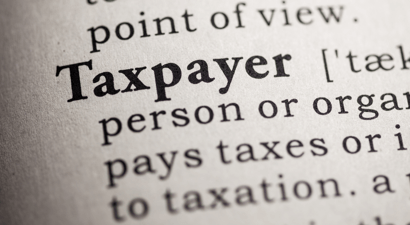Case Review: Imposition of an Underestimation Penalty
This judgment from the Port Elizabeth Tax Court concerned the imposition of an underestimation penalty. The Tax Board had to decide whether SARS was correct in its decision not to remit the penalty imposed for the underestimation of taxable income because no serious calculation had been done. Although the Tax Board ruled that the Commissioner was correct in rejecting the objection of the appellant, its chairperson raised a procedural issue under the Tax Administration Act, 2011, which had not yet come into effect at the time that SARS rejected the appellant’s objection, but had come into force in the interim.
Facts
The appellant company, a provisional taxpayer, delivered its return for payment of provisional tax for 2010 on 30 June 2011. The appellant estimated its taxable income to the amount of R431 638 and made payment of R64 905,54 in accordance with the estimation.
On 31 September 2011, the appellant made a further payment of R1 377 466,22. The appellant thereafter submitted an additional return of income for the same year of assessment, wherein the appellant disclosed a taxable income of R5 050 076. SARS, in view of the taxpayer’s discrepancy, imposed an underestimation penalty in accordance with the Income Tax Act. The assessment was submitted on 1 November 2011.
The appellant, on 18 May 2012, lodged an objection against the penalty and requested that it be waived because the penalty was “unnecessary punitive”. SARS subsequently rejected the objection on 4 June 2012 because the appellant made no due regard when calculating the taxable income. Thereafter, the appellant, on 4 July 2012, appealed SARS’ decision to disallow the objection because “...the taxpayer did not intentionally underestimate the taxable income, but made the best possible estimate with the information available”.
The appeal came before the Tax Board on 14 May 2015. The chairperson of the Tax Board had before him a notice of assessment dated 7 February 2013, which provided that the assessed income for the 2010 year was reduced and accordingly the penalty was reduced. The assessment stipulated the due date of the penalty to be 1 November 2011, being the original date of the imposition of the penalty.
The court noted that at the time of the rejection of the objection, as well as the time of the lodging of the appeal, the Tax Administration Act had not yet come into effect. Despite this the chairperson of the Tax Board, mero motu, stated that the reduced underestimation penalty conflicted with section 214 and 215 of the Tax Administration Act and was therefore legally unenforceable. SARS, thereafter, referred the appeal to the tax court to be heard.
In the Tax Court, the appellant abandoned all grounds initially relied upon and sought to rely solely on the procedural ground raised by the chairperson of the Tax Board. SARS accordingly raised an exception to the appellant’s amendment of the grounds of objection. It was common cause that the exception should be upheld unless the appellant’s application for an amendment is granted.
Issue
The issue in question before the Tax Court was whether SARS’ exception to the appellant’s application should be upheld.
In any event, SARS contended that the Tax Court was wrong in law and the amendment contended for could therefore not constitute a defence to the penalty imposed.
Relevant Law
Section 214(1) provides that a penalty imposed in terms of section 213 is imposed by way of a penalty assessment and if such assessment is made, SARS must give notice of the assessment in the manner prescribed in section 214.
Section 213(2) provides that in the event of a change to the amount of tax in respect of which a penalty was imposed, the penalty must be adjusted accordingly with effect from the date of the imposition of the penalty.
Application
The court held that a distinction is drawn between a penalty assessment as described in section 214(1), on the one hand, and an adjustment to a penalty as set out in section 213(2) on the other.
The Court held further that a penalty assessment relates to the original imposition of the penalty and an opportunity must be afforded to the taxpayer to request a remittance under section 215(1). A penalty adjustment, however, is a different matter. The penalty will therefore be effective from the date of the imposition thereof, as opposed to the date of the adjustment.
Conclusion
The Court agreed with SARS’ contention that the provisions of section 214(1) and 215 of the Tax Administration Act had no bearing on the appeal and that the proposed amendment can therefore not succeed.
Taxpayers need to exercise caution in their calculations for taxable income when submitting a provisional tax return. Additionally, taxpayers must take caution when formulating their grounds for objection as this case shows that it is not possible to subsequently amend the grounds for objection.





